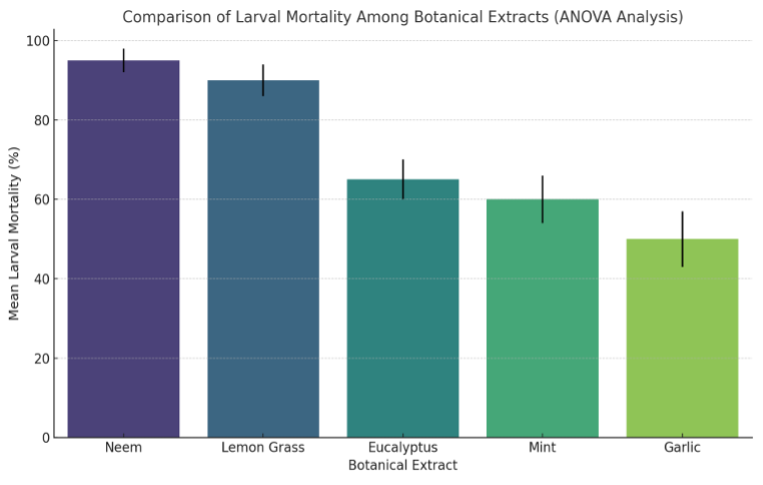Mosquitoes are major vectors of several life-threatening diseases, particularly in tropical and subtropical regions. Among them, Culex species are responsible for transmitting pathogens that cause filariasis, West Nile fever, and Japanese encephalitis. However, the widespread use of synthetic insecticides has led to significant drawbacks, including resistance development, harmful effects on non-target organisms, and environmental pollution. Consequently, plant-based insecticides are being explored as eco-friendly, biodegradable, and less toxic alternatives. This study evaluates the larvicidal efficacy of five botanical extracts neem (Azadirachta indica), garlic (Allium sativum), eucalyptus (Eucalyptus globulus), mint (Mentha arvensis), and lemongrass (Cymbopogon citratus) against Culex mosquito larvae. Extracts were prepared using aqueous and organic solvents and tested at multiple concentrations under laboratory conditions. Larval mortality was recorded at 24 and 48 hours post-exposure, and LC₅₀ and LC₉₀ values were calculated. All extracts exhibited varying levels of larvicidal activity. Neem and eucalyptus showed the highest efficacy, followed by lemongrass, mint, and garlic. The insecticidal effects are attributed to the presence of secondary metabolites such as alkaloids, terpenoids, flavonoids, and essential oils that disrupt larval physiology. These findings support the potential of botanical extracts as effective, sustainable alternatives to conventional chemical larvicides. Further research is needed to assess field-level effectiveness and develop optimized formulations for mosquito control programs.
Blog
- Home
- /
- Agriculture
- /
- Volume 2
- /
- Evaluation of the insecticidal efficacy of various botanical extracts against larvae of culex species

